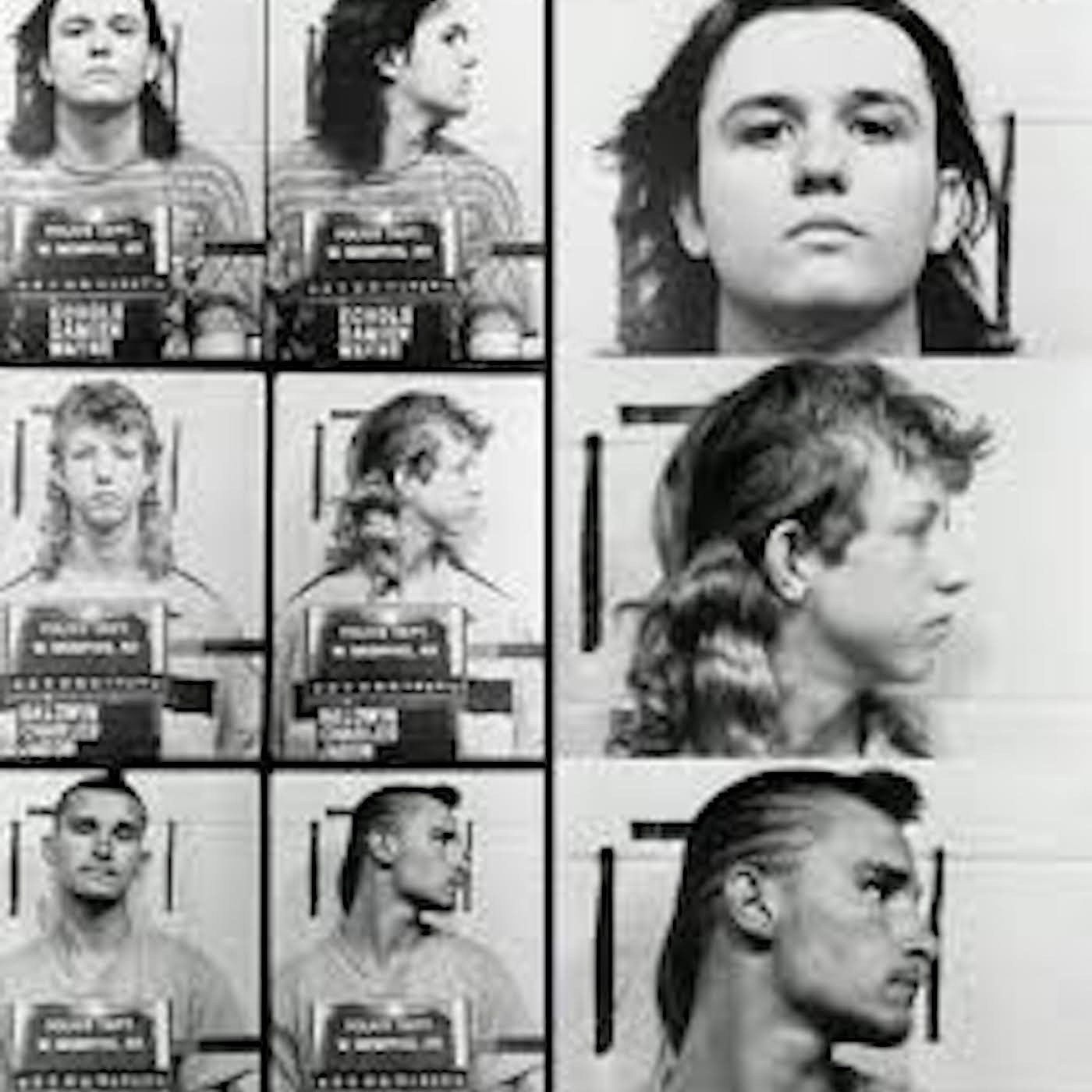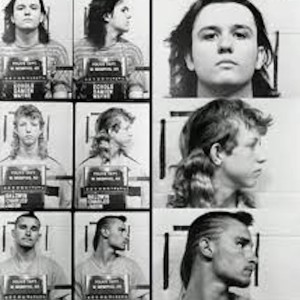
196.7K
Downloads
83
Episodes
The author of "The Case Against the West Memphis 3 Killers" follows new developments in the case, as well as other cases covered in various podcasts, televisions shows and documentaries, such as "Making a Murderer," "Truth and Justice," "The Staircase," and related news coverage, with a heavy emphasis on detailing misinformation and propaganda designed to subvert the judicial process.
Episodes

Saturday Jan 11, 2020
Saturday Jan 11, 2020
Prologue
There is the myth of the West Memphis 3 -- innocent teenagers railroaded by malicious police and prosecutors into murder convictions because of the way they dressed and the music they listened to, there being no evidence against them except the prejudices of Southern white Christians.
And then there is the reality --- three criminally inclined young thugs involved in occultism who gleefully tortured three 8-year-old boys and then brought the justice system down upon them based on multiple factors, including a series of confessions, failed lie detector tests, failed alibis, eyewitness sightings and a history of violence.
The second volume in this series, following "Blood on Black," continues to examine the evidence against Jessie Misskelley Jr., Jason Baldwin and Damien Echols in the murders of Christopher Byers, Michael Moore and Stevie Branch on May 5, 1993.
Misskelley, Baldwin and Echols met up that afternoon just outside Lakeshore Estates Trailer Park, according to the multiple confessions of Misskelley.
Echols and Baldwin were drinking beer. Misskelley had a bottle of whiskey jammed down into his pants.
Misskelley had been told the plan was to go to West Memphis and beat up some boys.
They walked about two miles into woods known as Robin Hood or Robin Hood Hills, just behind the Blue Beacon truck wash located on one of the network of service roads in West Memphis, Ark., where east-west Interstate 40 and north-south Interstate 55 briefly merged.
Echols knew the woods well, having lived in the nearby Mayfair Apartments, frequently walking through the area as a shortcut between his home in West Memphis and his friends in the trailer parks and having been spotted in the woods recently by an acquaintance.
Michael, Stevie and Christopher Byers, all second graders at Weaver Elementary School, lived south of the woods and, like other children in the area, visited the woods frequently to play. That afternoon they were spotted heading toward Robin Hood around 6, close to the time their killers entered from the north.
When Echols heard the children approaching, he began making sounds to lure them in, while Misskelley and Baldwin hid. Then, according to the confessions of Misskelley, and indicated by the blood patterns at the scene and other evidence, the teens jumped the 8-year-olds, beat them viciously, stripped them of their clothes, mutilated Stevie's face, castrated Christopher, sexually molested them, hogtied them and dumped them in a muddy ditch, where Michael and Stevie drowned. Christopher already had bled out from his wounds.
Misskelley quickly left the scene, which was scrupulously cleaned up. Echols was spotted walking along the service road near the crime scene later that evening in muddy clothes.
After frantic parents sparked an extensive search for the missing children, their bodies were discovered the next afternoon by law enforcement officers.
Tales of strange rituals held in the woods by mysterious strangers spread quickly among the crowd gathered near the crime scene.
As detectives and other officers gathered information and talked to witnesses or potential suspects, Echols quickly drew the scrutiny of officers.
Besides the talk among the boys' neighbors, the ritualistic aspects of the murder -- including the way the boys were bound, and timing possibly influenced by setting, proximity to a pagan holiday and celestial events -- furthered suggested occultism as an impetus for the killings.
Local officers were familiar with Echols as a dangerous, mentally ill teenager immersed in witchcraft. Among the many tips coming into police were reports that Echols had been seen near the crime scene that night and that he was heavily involved in a cult.
A series of police interviews with an all-too-knowing Echols did nothing but deepen suspicions. Echols failed a lie detector test, thereafter refusing to talk.
Police heard that Echols had been telling friends about his involvement in the murders.
Vicki Hutcheson, an acquaintance of Misskelley who also was friends with the Byers family, decided to "play detective. As a result of her investigation, and statements from her son, Aaron, who had been a playmate of the dead boys, the West Memphis police brought in Misskelley for routine question about his acquaintance with Echols.
After he, too, failed a lie detector test, he gave the first of a number of confessions about his involvement, along with Echols and Baldwin, in the murders.
Arrests quickly followed.
Baldwin never offered an alibi at trial; after a series of conflicting statements about his activities that day, Echols admitted in testimony that his description of his alibi changed to meet circumstances; Misskelley tried out several alibis, in between his confessions, none of which were sufficient to convince jurors that he had nothing to do with the murders.
The real-life horror story continues to play out in the second volume of this series, with Echols' background and mental illness extensively documented in the first book, "Blood on Black," along with incriminating details on the other two killers.
Baldwin and Echols have been given an opportunity to respond to questions regarding the case but gave no comment, blocking contact via social media. Contact via social media with the reclusive Jessie Misskelley was blocked. Questions posed via social media to Matt Baldwin, Stacy Sanders-Specht, Pamela Metcalf (Pam Echols/Hutchison), Angela Gail Grinnell, Constance Echols Mount (Michelle Echols), Garrett Schwarting, Kenneth “Lilbit” Watkins, Stephanie Dollar, Holly George Thorpe, Jennifer Bearden and John E. Douglas were not answered. The former Deanna Holcomb, who still lives in Arkansas under another name, gave no answer to a Facebook query on an account that otherwise appears active. Heather Dawn (Cliett) Hollis threatened legal action to prevent her name from being used (an empty threat on a number of legal grounds) and otherwise refused to explain the many discrepancies in her stories. Domini Ferris (Domini Teer) graciously and freely gave a phone interview. Susie Brewer responded with a forthright, honest update on her troubled relationship with Misskelley.
Much of the following was drawn from the official record in the words of actual witnesses, friends and neighbors of the killers and their victims.
Some misspellings, etc., in the transcripts have been corrected to facilitate comprehension; obvious transcription errors or lack of punctuation have been addressed, if not completely resolved. Excerpts from transcripts have been minimally edited for readability, sense and flow of narrative. Some information, such as the multiple confessions, has been repeated to set forth as complete a record as feasible. Quotes represent evidence as recorded, as well as common usage in the Arkansas Delta.
Deputy Prosecuting Attorney John Fogleman once said that it would take a book of 1,000 pages to tell the story of the case. These two volumes by no means exhaust the topic. If the case was not so controversial, the story could be told in a standard true-crime format of some 300 pages or so.
Given the one-sided narrative that has dominated this case, these two volumes have the stated purpose of showing the case against the West Memphis 3 killers. No attempt was made to offer the many counter-arguments made by defense attorneys and others benefiting materially from the case or explore the views of the many virtue-signaling "supporters" of the West Memphis 3 killers, since the overwhelming bias of Hollywood, the media and academe has been generously aired for many years. Other than those already noted, any errors are the author's.

No comments yet. Be the first to say something!